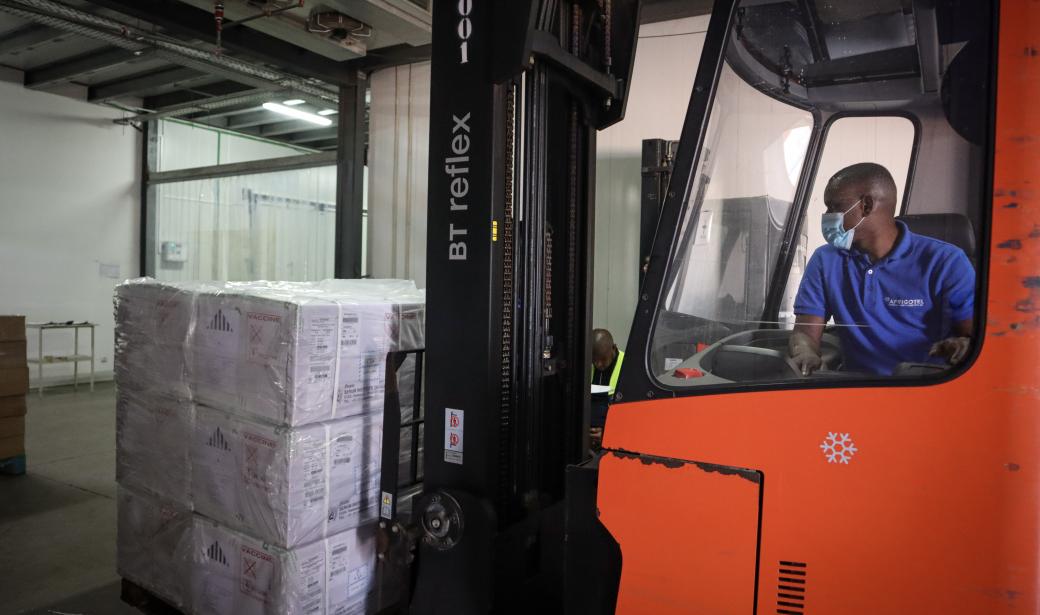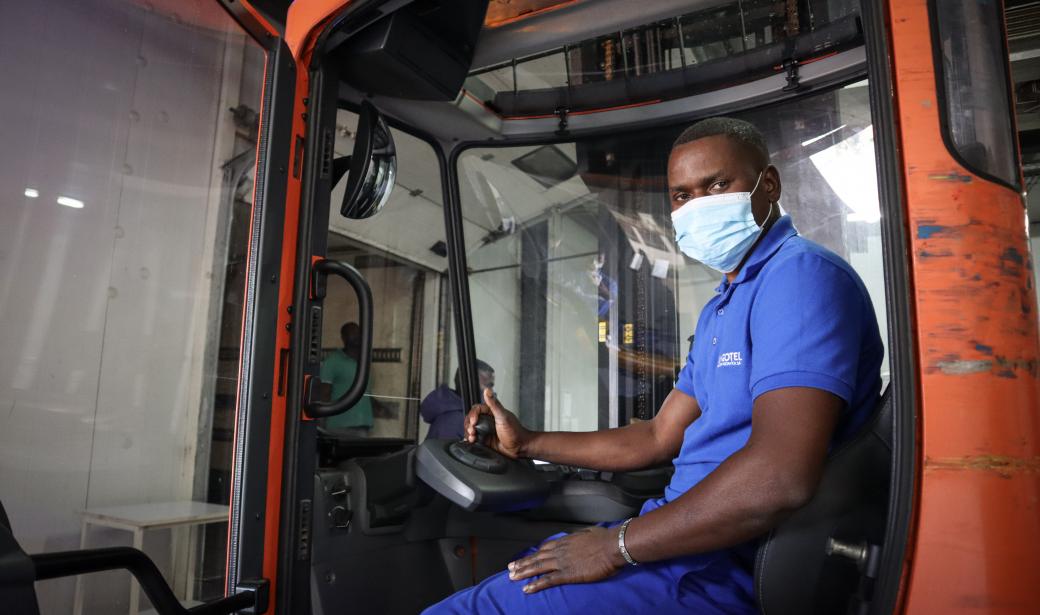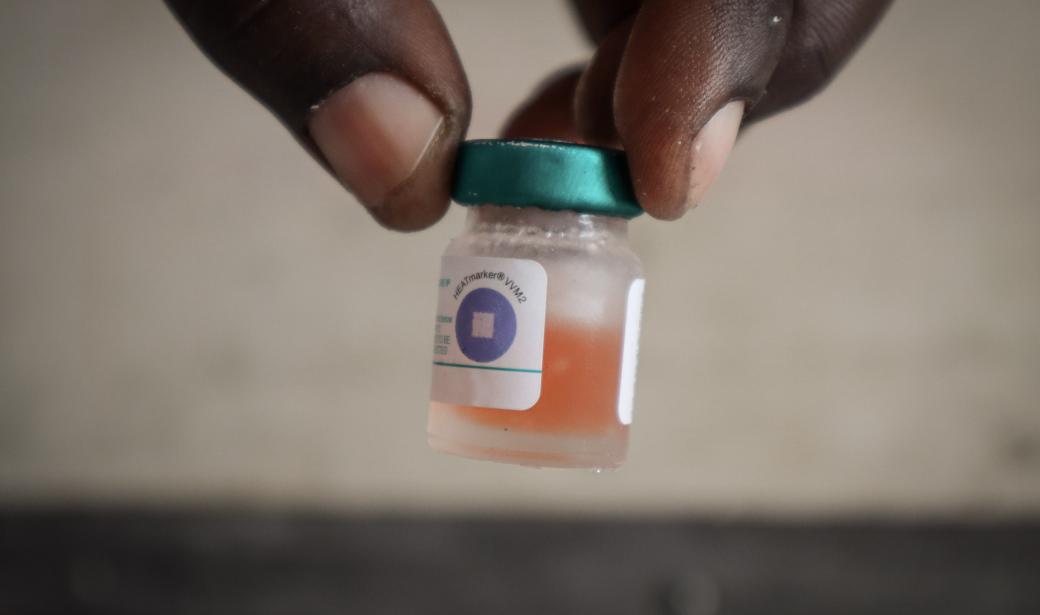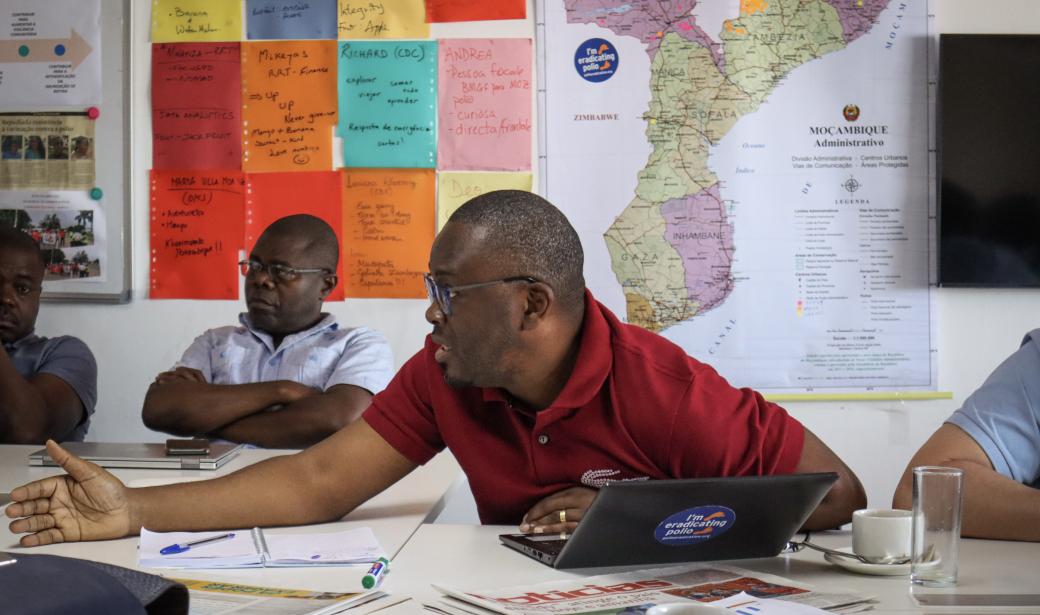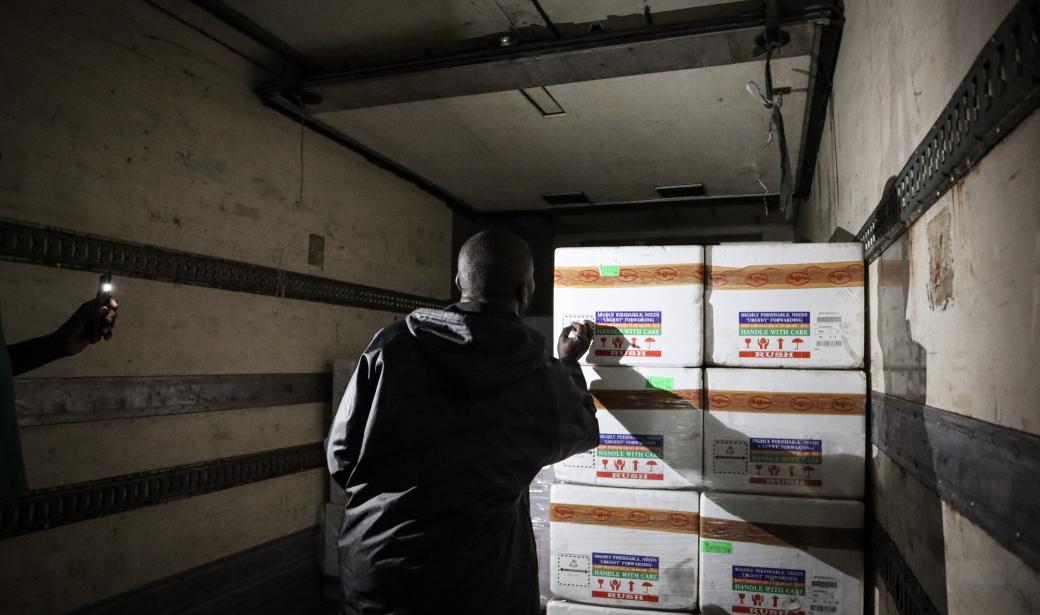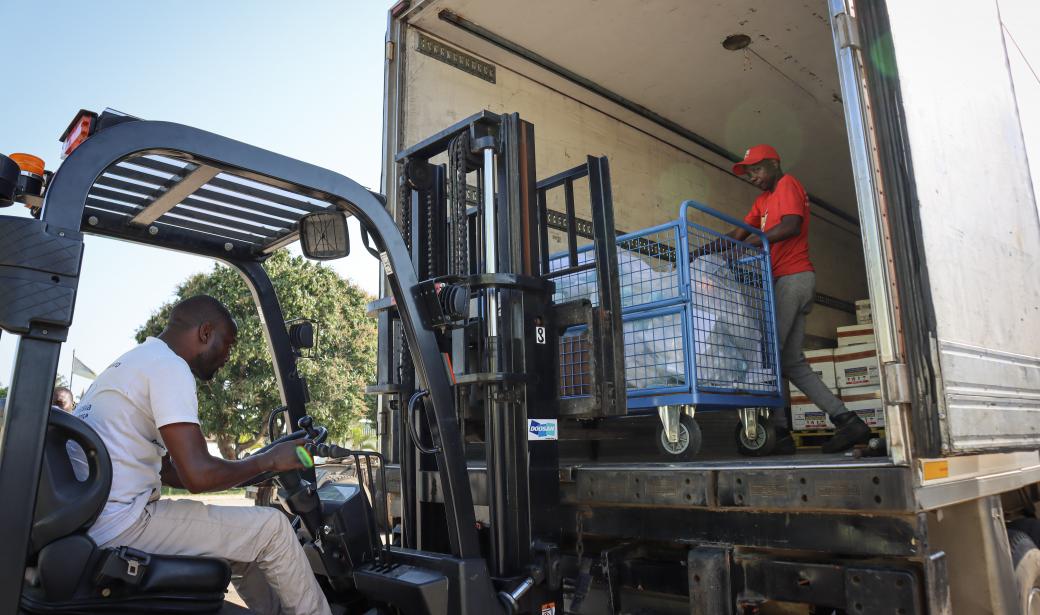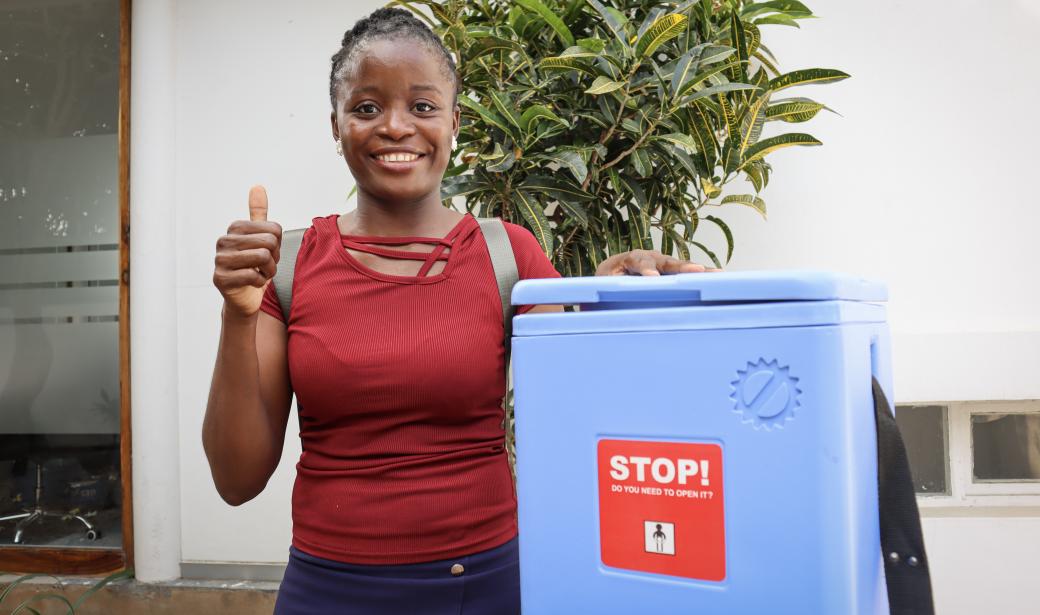Maputo – Delivering polio vaccines to every district of the African Region is a complex undertaking, as national authorities and health partners fighting polio in Mozambique know only too well. But with support from World Health Organization’s Regional Office for Africa (WHO AFRO), the United Nations International Children's Emergency Fund (UNICEF) and other Global Polio Eradication Initiative (GPEI) partners, a high-quality cold chain system is ensuring that teams on the ground can store, manage and distribute these crucial vaccines in the requisite temperature-controlled environments.
Geraldo Lopes, cold chain operator at Frigotel LDA, is one of the crucial links in the chain to deliver these lifesaving vaccines to children, with Mozambique so far successfully completing seven vaccination rounds since the first case of imported wild poliovirus type 1 (WPV1) was confirmed in May 2022.
When the more than 9 million vaccine doses for the latest round arrived in Mozambique, they were immediately transported to Frigotel LDA, which supports the national pharmaceuticals warehouse. In line with WHO guidelines, they were safely stored at between +2°C and +8°C while the vaccination dates were set – utilizing the same cold chain equipment, operated by the Mozambique Ministry of Health, that was used to store millions of routine immunization and COVID-19 vaccines and the height of the pandemic.
When the more than 9 million vaccine doses for the latest round arrived in Mozambique, they were immediately transported to Frigotel LDA, which supports the national pharmaceuticals warehouse. In line with WHO guidelines, they were safely stored at between +2°C and +8°C while the vaccination dates were set – utilizing the same cold chain equipment, operated by the Mozambique Ministry of Health, that was used to store millions of routine immunization and COVID-19 vaccines and the height of the pandemic.
Lopes is honoured to be able to support the Ministry of Health, helping secure the health and wellbeing of the country’s population in Mozambique: “By putting the vaccines in the right place as they arrive, ensuring that they remain cold during this process, we contribute to ensuring that all children get the chance to be healthy and polio-free.”
Every single polio vaccine must be in perfect condition to be administered to children. This is ensured through Vaccine Vial Monitors (VVM), small labels stuck on the vials which change colour when exposed to heat. The white square in the centre of the small light purple circle remains white if there has been no exposure to heat. With heat exposure, it begins to darken.
Registering cumulative heat exposure over time, giving health workers crucial information about the safety of the vial, the labels were first created for Oral Polio Vaccines (OPVs), but are now being used for almost all vaccines.
Registering cumulative heat exposure over time, giving health workers crucial information about the safety of the vial, the labels were first created for Oral Polio Vaccines (OPVs), but are now being used for almost all vaccines.
Among many other tasks, it was the job of Dr Lusamba Kabamba, former GPEI coordinator in Mozambique, to instruct teams about the status of vaccines as sensitive biological products which,”once they lose the ability to immunize children, cannot be regained¨.
¨Mozambique has been a good example of coordination efforts¨ he says. ¨Jointly with national public health authorities, we have trained frontline workers concerning the correct procedures for storage, conservation, and delivery of the vaccines, in order to ensure that children get the vaccine in perfect condition.”
¨Mozambique has been a good example of coordination efforts¨ he says. ¨Jointly with national public health authorities, we have trained frontline workers concerning the correct procedures for storage, conservation, and delivery of the vaccines, in order to ensure that children get the vaccine in perfect condition.”
While Lopes loads the vaccines for onward transportation for further distribution, the rest of the team ensures that the truck is equipped to maintain the cold chain despite rain, heat and other logistical challenges on its journey to the northern provinces, the areas most at risk of polio spread. All this must occur in the context of the recent flooding and disruption caused by the aftermath of Cyclone Freddy.
Delivery at provincial level in Mozambique is a challenge, with polio vaccination teams having to use bicycles, boats, and motorbikes to ultimately reach remote communities. The GPEI partners continue innovating to secure vaccine safety, with some teams now using power refrigerators to ensure cold chain maintenance against all odds.
For Additional Information or to Request Interviews, Please contact:
Monge Marta Villa
Communications Officer
Polio Eradication Programme
WHO Regional Office for Africa
Email: mongem [at] who.int (mongem[at]who[dot]int)
Tel: + 34 636 04 76 79



